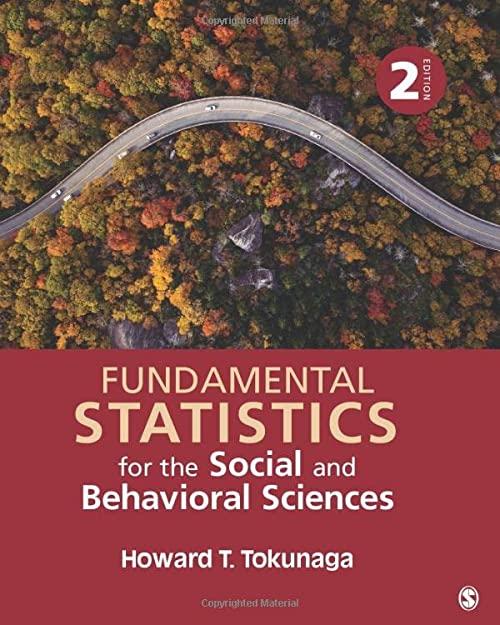For each of the research situations below, identify the two independent variables and indicate the type of
Question:
For each of the research situations below, identify the two independent variables and indicate the type of \(A \times B\) design (e.g., \(2 \times 2,3 \times 3)\).
a. An instructor gives a final exam in which she randomly assigns students to one of two conditions: handwritten or typed. She also assesses and classifies students' typing ability: low or high typing ability. She hypothesizes that students with low typing ability will do better on the handwritten exam than the typed, but the opposite will be true for those with high typing ability.
b. A researcher examines how reading to young children affects their interest in books. The researcher believes that the age of the child being read to and the type of book being read might influence their interest. She conducts a study in which groups of 3-year-old, 5 -year-old, and 7-year-old children read a fiction book or a nonfiction book. She hypothesizes that for the youngest children, reading fiction books rather than nonfiction books will lead to a greater interest in reading. However, as children get older, this difference between the two types of books will grow smaller such that for the oldest children, the type of book will not make a difference.
c. A researcher hypothesizes that the effect of alcohol consumption on one's motor skills depends on the person's weight (underweight, normal, or overweight) but that this differs for men versus women. More specifically, for underweight people, men and women are equally affected. However, the more a male weighs, the greater the effect of alcohol, whereas for females, the effect stays the same no matter how much females weigh.
d. A researcher believes that the influence of drinking coffee on the ability to fall asleep depends on the amount of coffee one drinks and the time of day one drinks the coffee. She has groups of students drink one, two, or three cups of coffee in the morning, afternoon, or evening. She hypothesizes that drinking coffee in the morning only has a slight effect on the later ability to fall asleep, and this is the same regardless of the amount of coffee one drinks. However, drinking coffee later in the day has a greater effect on the ability to fall asleep; furthermore, the more coffee one drinks later in the day, the greater the impact on this ability.
e. A researcher is interested in studying the relationship between students' motivation and their performance on different types of tests. She hypothesizes that students who have low motivation to achieve their goals will perform at a level similar to students with high achievement motivation when a test is easy. However, on a hard test, students with low achievement motivation will do worse than they did on the easy test, whereas students high on achievement motivation will do better than they did on the easy test.
Step by Step Answer:

Fundamental Statistics For The Social And Behavioral Sciences
ISBN: 9781506377476
2nd Edition
Authors: Howard T Tokunaga





